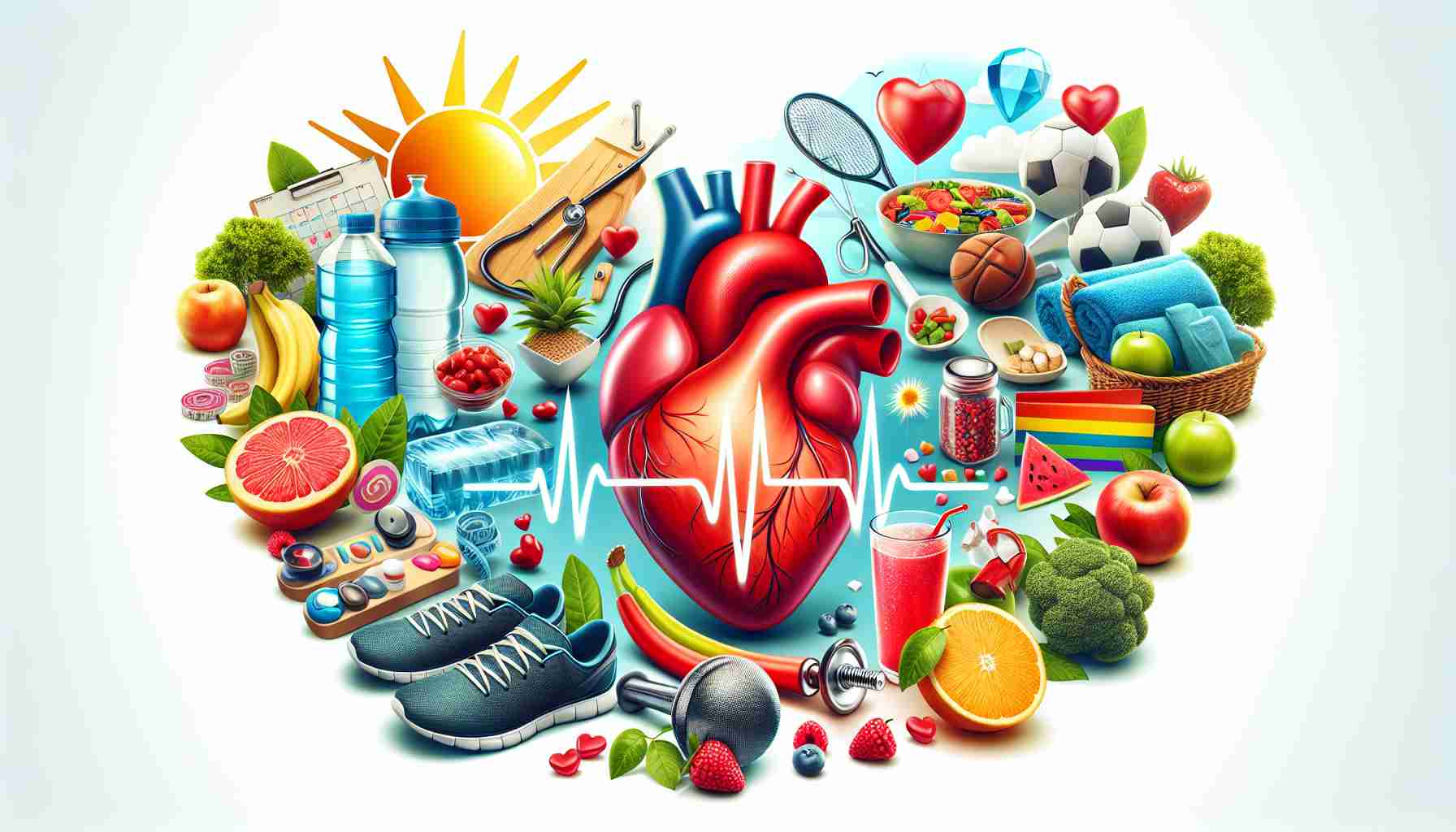High Temperatures and Heart Health
Warm summer weather poses a challenge to cardiovascular health due to increased strain on the heart caused by the body’s efforts to cool down. This added workload can lead to complications for individuals with pre-existing cardiovascular conditions.
Hydration and Electrolyte Balance
Excessive sweating in hot weather can result in dehydration and electrolyte imbalances, which can impact the heart’s rhythm and contractions. Adequate hydration and replenishing electrolytes are crucial for maintaining heart health during the summer months.
Emotional Well-being and Sleep
The heat and discomfort of summer can affect mood, leading to increased stress and anxiety, which in turn can elevate heart rate and blood pressure. Additionally, disrupted sleep patterns due to long daylight hours can further strain the cardiovascular system.
Healthy Eating Habits
A heart-healthy diet in summer should focus on light, easily digestible foods such as vegetables and fruits. Avoiding excessive sugar and spicy foods while staying well-hydrated can help reduce the risk of cardiovascular issues.
Exercise and Blood Pressure Management
Moderate exercise is beneficial for heart health, but it’s important to choose low-impact activities and avoid exertion during peak heat hours. Monitoring blood pressure and medication under medical guidance is crucial for individuals with hypertension.
Special Considerations for Older Adults
Seniors, especially those with underlying heart conditions, should take extra precautions to stay cool and hydrated in hot weather. Proper ventilation, sun protection, and prompt medical attention in case of any cardiovascular symptoms are essential for maintaining heart health in the elderly population during summer.
Additional Tips for Summer Heart Health
As we dive deeper into the topic of maintaining a healthy heart during warm weather, it’s important to address some key questions and lesser-known facts that can impact cardiovascular well-being.
1. How does air pollution affect heart health in summer?
Air pollution, which can worsen during summer months due to factors like increased car exhaust and ozone levels, poses a significant risk to heart health. Particles in the air can trigger inflammation and oxidative stress, potentially leading to heart attacks and other cardiovascular issues.
2. Are there specific heat-related heart conditions to be aware of?
Heat exhaustion and heatstroke are two heat-related conditions that can severely impact the heart. Heat exhaustion can lead to dehydration and a rapid heart rate, while heatstroke can result in a dangerously elevated body temperature that puts stress on the heart and other organs.
3. What role do outdoor activities play in summer heart health?
Engaging in outdoor activities like gardening, hiking, or swimming can have both positive and negative effects on heart health. While outdoor exercise promotes cardiovascular fitness, exposure to extreme heat and humidity can strain the heart. It’s important to strike a balance and take necessary precautions when being active outdoors.
Advantages and Disadvantages
One advantage of focusing on summer heart health is the opportunity to enjoy the season while prioritizing well-being through healthy habits. However, a key challenge is the temptation to indulge in unhealthy food and drinks commonly associated with summer festivities, which can negatively impact heart health.
For more insights on heart health and strategies to stay safe and well during the summer, visit heart.org.This website provides valuable resources and up-to-date information on cardiovascular health.




























